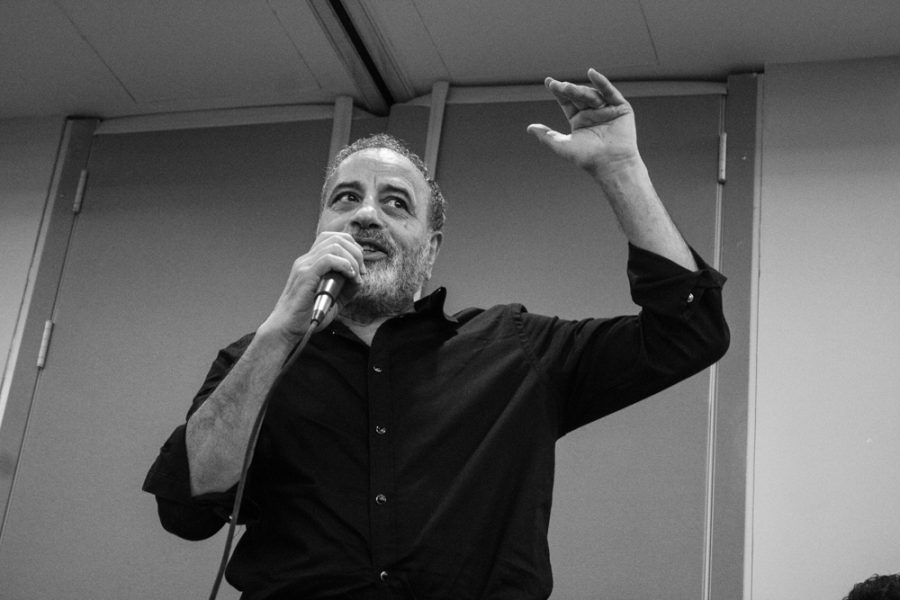Celebrate Salaam Namaste With Desi Chai and Arabic Club
Desi Chai and Arabic clubs work together to host a night of South Asian and Middle Eastern culture
March 29, 2023
Fordham’s Desi Chai and Arabic Club collaborated on March 10 to host Salaam Namaste, an event where South Asian and Middle Eastern students together embrace their culture. Salaam and Namaste are both translated to “greetings” in Arabic and Sanskrit, respectively.
Open to all Fordham students, the event consisted of two main events: a trio of musicians playing several Desi and Arabic songs, and a student performing an act of belly dancing. The event ended with dinner followed by an hour of fun on the dance floor.
“Desi” refers to those with ancestors from South Asian nations such as India, Pakistan or Bangladesh, whereas the people of Arabic descent are from the Middle East, North Africa and the Gulf. Although the clubs seem different, their display of music, cuisine and customs were a testament to how Desis and Arabs have inherently similar cultures and a connected history.
Sanzida Sara, Fordham College at Lincoln Center (FCLC) ’24 and president of Desi Chai, said that the interlinkage of Desi and Arab culture played a significant role in making this event a tremendous success for both communities.
“I just wanted to show that everyone is similar,” Sara said. “We all have some form of connection regardless of where we come from.”
Amira Motair, FCLC ’25 and president of Arabic Club, said that bringing both Desi and Arabic students together develops a “cultural fusion.” She added that her club’s mission was to work with Desi Chai in shedding light on the underrepresentation of Middle Eastern students.
“As a Middle Easterner, I feel that some students are being underrepresented, and as a freshman, I couldn’t find any other people that looked like me,” Motair said. “What we are trying to show here is that Fordham is an open and safe space.”















